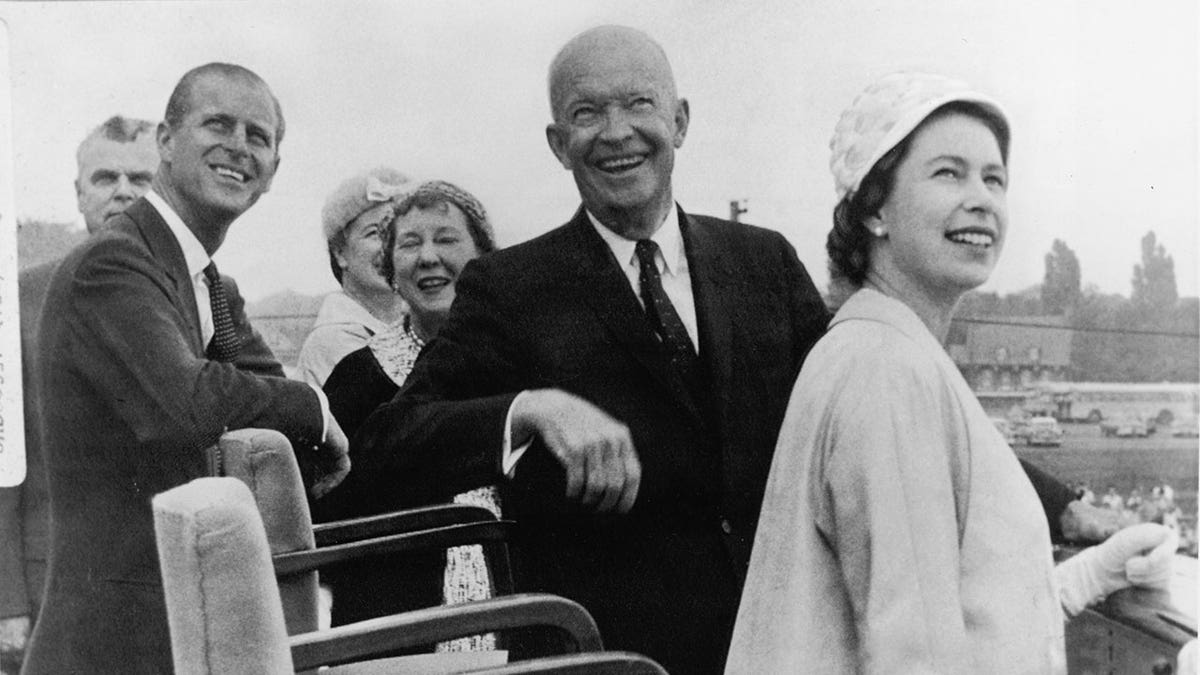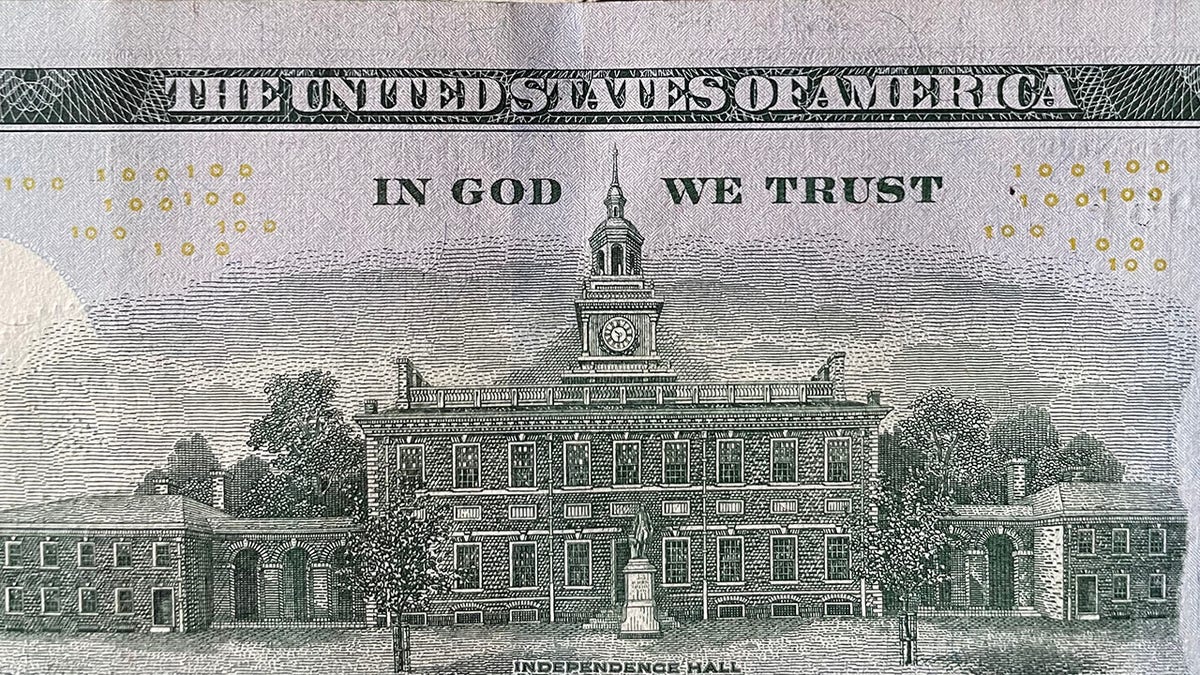Join Fox News for access to this content
Plus special access to select articles and other premium content with your account – free of charge.
By entering your email and pushing continue, you are agreeing to Fox News’ Terms of Use and Privacy Policy, which includes our Notice of Financial Incentive.
Please enter a valid email address.
On this day in history, July 30, 1956, the 84th Congress passed a joint resolution declaring “IN GOD WE TRUST” to be the national motto of the United States, according to History.com.
Passing in both the House and the Senate unanimously and without debate, the resolution replaced “E pluribus unum,” which had existed before as a de facto official motto, the same source noted.
Just two years earlier, on June 14, 1954, President Dwight Eisenhower signed a bill to insert the phrase “under God” into the Pledge of Allegiance, said History.com.
Before this bill, the U.S. Pledge of Allegiance, originally written in 1892, had contained no reference to religion.
The phrase “In God is our Trust” appears in the 1814 poem “Defence of Fort McHenry” by Francis Scott Key, noted the National Museum of American History.

In 1865, Congress authorized the mint to put the motto “In God We Trust” on all silver and gold coins that had space for the phrase. (iStock)
The poem was written in reaction to the British invasion in 1812, the same source indicated.
Key wrote, “And this be our motto — ’In God is our Trust’” in the poem’s final stanza.
ON THIS DAY IN HISTORY, SEPT. 14, 1984, AMERICAN ‘FLAG WAS STILL THERE’ AFTER ATTACK ON FORT MCHENRY
The poem became the basis of the national anthem, “The Star-Spangled Banner,” the National Museum of American History said.
The phrase is also woven into other aspects of American history.
The official use of “In God We Trust” dates back to the Civil War era, reported The Pew Research Center.

President Dwight D. Eisenhower (1890-1969) signed a bill in 1954 to insert the phrase “under God” into the Pledge of Allegiance. Two years later, on July 30, 1956, the 84th Congress passed a joint resolution declaring “IN GOD WE TRUST” the national motto of the United States. (Express Newspapers/Getty Images)
In 1861, the Rev. M. R. Watkinson, a Christian minister from Ridley Township, Pennsylvania, sent a letter to Secretary of the Treasury Salmon P. Chase requesting “the recognition of the Almighty God in some form on our coins,” according to the same source.
Sec. Chase agreed and instructed the director of the mint to prepare a motto for use on coins.
“In God We Trust” first appeared on a two-cent coin in 1864, according to The Pew Research Center.
The director proposed “God, Our Trust,” but Chase altered the phrase to “In God We Trust,” which first appeared on a two-cent coin in 1864, according to The Pew Research Center.
The following year, Congress authorized the mint to put the motto on all silver and gold coins that had space for the phrase, the same source indicated.
For more Lifestyle articles, visit foxnews.com/lifestyle
The first paper currency bearing the motto entered circulation on Oct. 1, 1957, when it appeared on the $1 silver certificate, according to Politico.

“In God We Trust” is displayed on all U.S. currency. Here, it’s shown on the back of a $100 bill. (Fox News Digital )
“Gradually, as new indigo printing processes were perfected, the motto was printed on all currency denominations.
On Nov. 2, 2001, the House of Representatives passed a non-binding resolution reaffirming “In God We Trust” as the national motto.
The initial idea of adding the motto to paper currency came from George Humphrey, Eisenhower’s Treasury secretary,” said the same source.
On Nov. 2, 2001, the House of Representatives passed a non-binding resolution reaffirming “In God We Trust” as the national motto.
CLICK HERE TO SIGN UP FOR OUR LIFESTYLE NEWSLETTER
It was approved 396-9, with two abstentions, according to PBS.
The measure was sponsored by Rep. Randy Forbes, R-Va., the same source indicated.
CLICK HERE TO GET THE FOX NEWS APP
“In God We Trust” continues today to be displayed on all U.S. currency and on government buildings throughout our nation.
“No longer religious in nature, the phrase has become, rather, a historical artifact, a public recognition of the role of religion in national life, and an expression of patriotism,” said the Free Speech Center of Middle Tennessee State University.